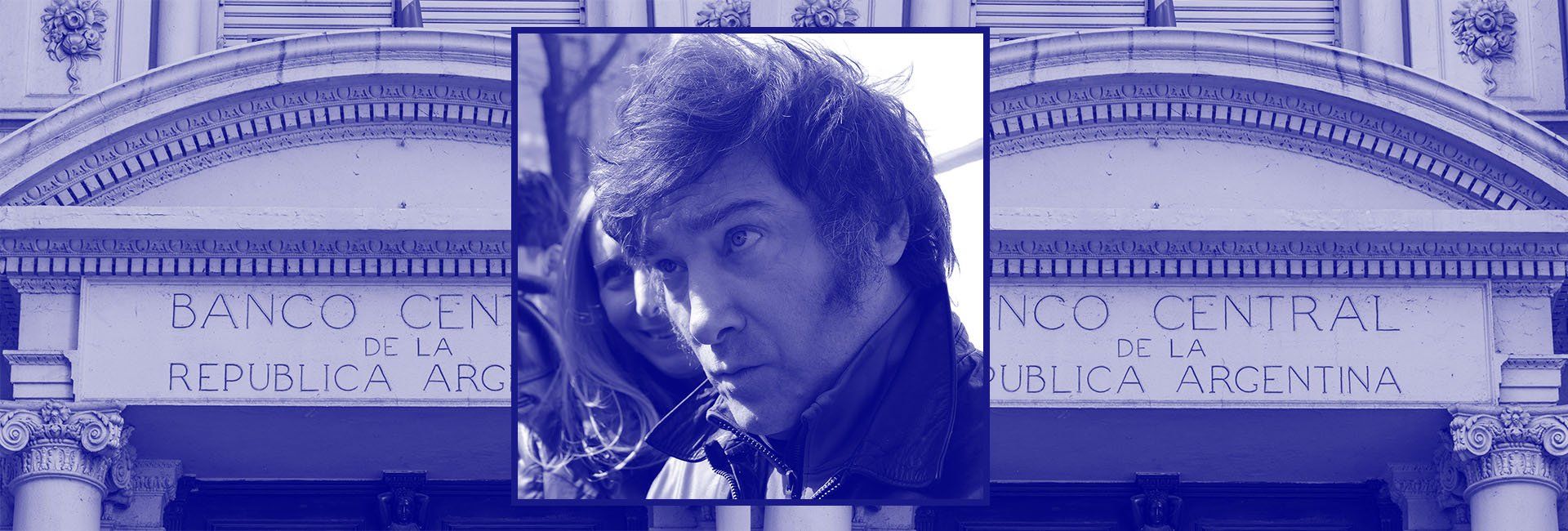Argentina has elected Javier Milei, a far-right “radical” running on a platform of ultra-conservative social and economic reform, to be the next president of the South American nation. He has been labelled “Argentina’s Trump" but what makes him stand out from his right-wing equivalents elsewhere in the world is his candidacy has succeeded thanks to younger voters.
Pre-polling by Buenos Aires-based publication Pagina 12, ahead of the first round of presidential voting on October 21, found that 49 per cent of voters aged 16-29 would vote for Milei out of the top three candidates. In a country where the voting age is 16, this youth vote would prove vital.

His policies have included re-criminalising abortion, legalising organ sales, loosening gun controls, shutting down the central bank and replacing the Argentinian peso with the US dollar. He announces these policies at Trumpian rallies with his now notorious cloned mastiffs by his side.
“He’s a showman,” says Dr Peter Ross, an expert in Latin American politics at UNSW, speaking ahead of Sunday's runoff election. Milei while on the campaign trail, has sported an iconic leather jacket, brandished a chainsaw and used expletives to describe established Argentinian institutions as well as rival politicians.
“That sort of thing is appealing to a lot of young people because they’re still developing their political sympathies and so they’re more willing to entertain these ideas,” Ross said.
Tomas Galanti, a 22 year old Argentinian-Australian, while not a supporter of Milei, understands where the sympathy among the youth comes from. “To be honest I think it's ... to do with the fact that people are sick of the same thing over and over again,” Galanti said. “Most of every government we’ve had in Argentina has just been populist pandering and it’s left the economy and state of the union in absolute, probably irreversible disarray.”
After the first round of voting, Centre Left candidate Sergio Massa, who won 36 per cent of the vote compared to Milei's 30 per cent, advanced to a runoff with Milei. Massa is a part of the “Peronist” political movement, that has won 10 of the 14 presidential elections it was allowed to contest since 1946. (The party was banned during the brutal military dictatorship from 1976 to1983.) Milei, on the other hand, comes from outside of the traditional political structure, with a clearly conservative ideology.
'I think it's to do with the fact that people are sick of the same thing over and over again.'
Ross said that this “outsider” image is what helped bolster Milei's popularity. “The support that Milei is getting, I think, is people fed up with the traditional party and politicians in general." Sunday's runoff result, where Milei won 55 per cent of the vote, appears to back this up.
Argentina has struggled in the 21st century. It has been a time of political and social upheaval. In 2001, an economic crash led to an International Monetary Fund (IMF) bailout that then generated resentment and distrust of the state. “The economy really broke down; the government really broke down,” Ross said. “One of the slogans people had at the time was that ‘They All Go.’ Sort of an anarchist’s call.”
In 2018, the country again needed IMF support, with a record US$57 billion loan, after the failed financial reforms of then Argentinian president Maurico Macri. In his campaign for president, Milei leveraged ongoing discontent about the economy with a campaign slogan “They all must go" that echoed the 2001 protest chants.
Dr Jim Levy, an expert in Argentinian history at UNSW Sydney said this repeat of the 2001 economic crisis would have been a key issue on the minds of voters.
'I've got this feeling... that the youth just wants to burn it down.'
“Cost of living, corruption, inflation,” Levy said, when asked what voters were considering going into the election. “Just how are we going to get out this mess yet again.
“I’ve got this feeling … that the youth just wants to burn it down and are just so cynical and angry. I think it’s a bit like 2001 when you ‘get rid of them all'.”
For Galanti, this economic cycle helps explain how Milei galvanised such support from young Argentinians. “There's been a big shift in right-leaning youth because at the very least it provides an alternative and it provides a call to action. This is actually, at the very least, something that hasn’t been tried before.”
For many of the key 16-29 demographic, who have spent much of their formative years living in this political and economic uncertainty, Milei does provide an alternative to the establishment in Argentina.
However, for outsiders, he’s one more example of a growing global trend of popularly elected right-wing leaders.
“He’s not absolutely consistent … it’s a bit hard to know what you’re going to get but I would say he’s in the same position as Trump and [former Brazilian President] Bolsonaro,” Ross said. Then, he corrected himself: “He actually goes a bit further than Trump.”
A century ago, Argentina was one of the top 10 economies in the world, with greater wealth per capita than Germany or France. Today it has slid to 22nd and its people have signalled they want change. In doing so, they have chosen a self-labelled “anarcho-capitalist” to lead them forward. The question is, will Javier Milei effect positive change or bring more of the same instability that has plagued the country for decades.
Adrian is studying a double degree in Law and Journalism.
He enjoys horror movies and going bouldering in his free time.






